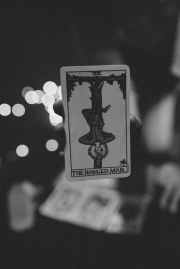The ability to read minds is a superpower often portrayed in many forms of popular media. The idea of being able to understand our peers, down to the most minute detail, is both seductive and a credence to our innate desire to understand one another. It is our perception, of the understanding of others’ minds, that we use to shape our views of the world. Mount Rushmore, in the United States, for example, only holds meaning because of our collected understanding of the grandeur of the monument, and an appreciation of what/who we gaze upon.

All humans sort of read minds – it’s called intuition. Based on the feelings, actions and behaviours of another person, someone with well practiced intuition can often tell when something is wrong, or when someone is excited. Believe it or not, these functions are encoded directly into our brain, in an area called the posterior superior temporal sulcus, an area dedicated to recognizing facial expression. The ability “read ones feelings” is so integral to our survival as a social species in fact, that many animals exhibit this level of intuition, dogs being the most obvious example. Have you ever had your pet dog come and comfort you on a difficult day? Ever have your German Shepherd start barking at a stranger when you start to look alarmed and panicked? Ultimately, this phenomenon comes from a profound ability to react to subtle nonverbal communication, like facial expression and body position, on a seconds’ notice.
People have different degrees of intuition. For some people, they are able to “read a room” without ever having met anyone in it. For others, they have a difficult time guessing a loved ones’ thoughts, despite their best effort. There are likely genetic and environmental reasons for this, although they are not well-defined.
Someone practicing as a psychic shows a high level of human intuition and understanding of the human experience, for example. By reading your face, body language, reaction to their readings, and with a little context, they are often able to provide spookily relevant advice to you about, for example, the death of a loved one.
Anxiety and mind reading
A psychic is a great example of a person using an innate ability to their advantage for their profession. Not always, however, does strong intuition on the feelings of others provide us an advantage. Many people with an anxious disposition find themselves hyper-aware of situations, and consequently, it can become overwhelming. Seeing a young group of teenagers for example might set off the anxious persons “spidey sense” and prevent them from walking by the group, whereas someone else may find themselves less preoccupied by this group of people.
An anxious person may also find themselves taking too much responsibility for keeping the flow or a party, group, or conversation comfortable, because they are more sensitive to the various social cues sent out by the attendees. An anxious person would be the first to recognize when Tim was getting bored or when Siobhan is feeling uncomfortable. They might be the first to recognize when dad has had too much, or when the hostess is getting tired. Obviously, having some degree of this behaviour shows high social intelligence. If you find yourself being unable to enjoy your own birthday party for the same reason, it might fall under the umbrella of a disorder.
Cognitive mind reading and depression

“Everyone hates me.”
“My friends think I’m boring.”
“I know everyone is looking at the weight I put on when I go to work.”
“I give a bad first impression.”
“They all think my clothes is lame.”
One of the most common forms of pathological mind reading, is cognitive mind reading. See the examples above. We have all, probably, had a thought at least something like that at some point in the past. We might even be having those thoughts now.
The above examples represent cognitive mind reading, a phenomenon common to many forms of depression. Cognitive mind reading involves someone often making a negative assumption about someone’s thoughts, as it relates to themselves, out of keeping with reality. “Everyone hates me,” for example. Everyone does not hate you. Most people on the street don’t know you! These thoughts are actually a reflection of a depressive process.
When you become depressed, you put on some “gray-coloured glasses.” What this means is you often view things in a more negative light. The skies are grayer, video games are less fun. And seem esteem deflates. The social intuition discussed at the beginning of this post is no exception. When you’re depressed, this part pf your brain becomes hijacked, and all of a sudden, you may find yourself thinking that the world is thinking a lot more negative of you, even though it isn’t. In reality, those negative mind reading assumptions (where you believe that all of the negative things you worry people are saying about you are true) are a reflection of your brain being depressed. When you’re depressed, your brain colours everything gray. It sucks!
But it’s not all doom and gloom. Cognitive mind reading is one of the most common forms of cognitive distortions seen in depression, and physicians and therapists are well positioned to help you handle this. One of the first steps to this is understanding what cognitive mind reading is, why it’s happening, and importantly, that it’s very common in situations like your own. You’re not going crazy.
And not everybody hates your jacket.
Thought reading
While cognitive mind reading is extraordinarily common, with many depressed and non-depressed people experiencing some degree of this on any given day, thought reading is relatively rare.
Thought reading is a delusion, and is actually one of the more classic features of a

psychotic (not psychic) illness called schizophrenia. When someone is experiencing thought reading, they literally believe that they are privy to the thoughts of others. I can literally hear your thoughts. This can be differentiated from cognitive mind reading in a few different ways.
- Someone with thought reading may (though not necessarily) literally hear the thoughts as a form of auditory hallucination.
- When you ask someone with cognitive mind reading to explain how they know “Yousef hates me,” they will usually give a lot of evidence, as if building an overwhelming court case. “Look at the way he did this… look at this behaviour… and I just know he does because this… he hugged me last and it seemed uncomfortable…” Someone experiencing thought reading will often reply, “I can hear their thoughts.”
- The clinical picture is wildly different in both (though there are of course borderline cases). Thought reading is accompanied by psychosis. Cognitive mind reading is accompanied by anxiety and depression.
An important note here is that cognitive mind reading usually upsets the person and causes them problems. Thought reading has a variety of much more extreme reactions attached to it.
A twenty two year old male presents to the unit acutely psychotic and paranoid. During the course of the admission, he is very aggressive, and damages much of the furniture on the wards in a psychotically driven rage. When he’s better treated, you speak to him, and he discussed that he read the thoughts of the female nurses, and they all thought he was disgusting, which angered him.
A thirty year old male tells you about the microchip he had implanted so he can now read minds. He plans to kick some ass on the stock market with this new information. You diagnose him with a grandiose delusion.
If you are worried you have some form of mind reading, it’s most likely some degree of cognitive mind reading. If you’re concerned, see your doctor. They might help!
Dr. Travis Barron is a resident physician in Toronto, Canada.
Very interesting post. Some people are genetically just more sensitive. They are called Highly Sensitive People, or HSPs
When making any diagnosis, we also need to bear in mind whether people are highly sensitive, by inborn temperament.
Sadly, many individuals like this do not themselves recognize their highly sensitive nature. Thanks for posting, and best wishes with your residency. Brings back memories of being in Toronto and doing a residency in Toronto, the hub of Ontario.
LikeLiked by 1 person